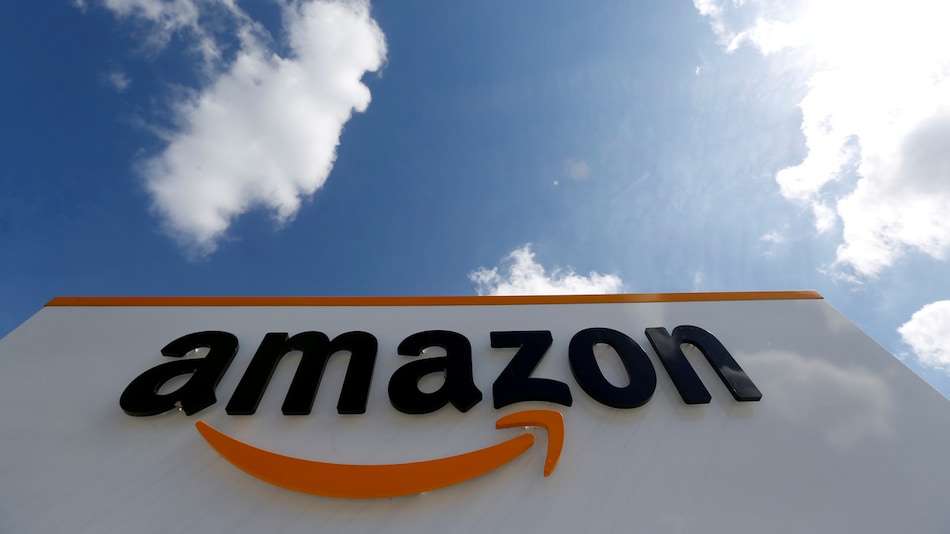- Home
- Internet
- Internet News
- Amazon Says It Prevented 4 Billion Bad Listings, Stopped Over 2.5 Million Attempts to Create Fake Accounts
Amazon Says It Prevented 4 Billion Bad Listings, Stopped Over 2.5 Million Attempts to Create Fake Accounts
Amazon has stepped up efforts to fight counterfeit sellers amid heightened scrutiny from brands and lawmakers.

Photo Credit: Reuters
Amazon said it spent over $900 million (roughly Rs. 7,000 crore) to push back against fraud
Amazon, which has been under increasing pressure to tackle counterfeit products, said in its second-annual report that it prevented 4 billion bad listings from making it onto its site and got rid of more than 3 million phony products last year.
The results, released Wednesday, were mixed compared with 2020, when Amazon blocked 10 billion listings and got rid of 2 million phony products. The Seattle-based e-commerce juggernaut also saw a decrease in complaints of intellectual property infringement in 2021 while growing the number of active brands on its site.
According to the report, Amazon stopped more than 2.5 million attempts to create fake accounts on its third-party marketplace, where sellers can list their products directly to consumers. That number is about a 58 percent decline from the attempts it said it stopped in 2020, which the company credits to its vetting process and other efforts to deter bad actors.
But Juozas Kaziukėnas, the founder of e-commerce research firm Marketplace Pulse, said it can be hard to independently know what actually caused those declines — whether it's Amazon's policies or other factors.
Counterfeit sellers have long plagued Amazon and other e-commerce retailers, including eBay. And Amazon has stepped up efforts to fight it in recent years amid heightened scrutiny from brands and lawmakers pushing for anti-counterfeit legislation.
Amazon backs a US House of Representatives version of an online retail bill, known as the INFORM Act, which would require online marketplaces to collect contact and financial information from high-volume sellers and disclose some of the information to consumers. Amazon had opposed an earlier Senate version of the bill, which would require online retailers to gather information from a larger group of third-party merchants.
Meanwhile, TechNet, a lobbying group that counts Amazon and eBay as some of its members, is pushing back against another bill that would make the e-commerce platforms liable for counterfeit goods sold on their site. An Amazon spokesperson said in an emailed statement the company recognizes “the intent of the legislation is to stop counterfeits" and looks forward to working with Congress to achieve that goal.
In its report, Amazon said it implemented a program last year that made it harder for bad actors to register for selling accounts by requiring one-on-one conversations with a company team member to verify their identity. It says it's also verifying the seller's physical location and payment instruments and leveraging machine learning to detect risks about potential accounts.
Last year, the company said it spent more than $900 million (roughly Rs. 7,000 crore) to push back against fraud, and sued — or referred — more than 600 sellers for investigation in the US and other places like China. Amazon did not reveal in the report the source of most counterfeit products, but China has been a sore spot. And the company won't share data that helps it detect and prevent phony products from showing up on its site, said Mary Beth Westmoreland, Amazon's vice president of brand protection.
According to Marketplace Pulse, the share of top China-based merchants has steadily been declining on Amazon's third-party marketplace since late 2020, a trend some experts believe may be caused by pandemic-induced supply chain snafus and the company's recent efforts to crack down on prohibited activity, including fake reviews. Last year, the company suspended several prominent China-based sellers and reportedly kicked off 50,000 merchants for violating its rules.
Marketplace Pulse's data shows 55 percent of the top sellers on Amazon's US marketplace are domestic businesses, a jump from 48 percent in November 2020.
Get your daily dose of tech news, reviews, and insights, in under 80 characters on Gadgets 360 Turbo. Connect with fellow tech lovers on our Forum. Follow us on X, Facebook, WhatsApp, Threads and Google News for instant updates. Catch all the action on our YouTube channel.
Related Stories
- Samsung Galaxy Unpacked 2025
- ChatGPT
- Redmi Note 14 Pro+
- iPhone 16
- Apple Vision Pro
- Oneplus 12
- OnePlus Nord CE 3 Lite 5G
- iPhone 13
- Xiaomi 14 Pro
- Oppo Find N3
- Tecno Spark Go (2023)
- Realme V30
- Best Phones Under 25000
- Samsung Galaxy S24 Series
- Cryptocurrency
- iQoo 12
- Samsung Galaxy S24 Ultra
- Giottus
- Samsung Galaxy Z Flip 5
- Apple 'Scary Fast'
- Housefull 5
- GoPro Hero 12 Black Review
- Invincible Season 2
- JioGlass
- HD Ready TV
- Laptop Under 50000
- Smartwatch Under 10000
- Latest Mobile Phones
- Compare Phones
- Redmi Turbo 5
- Redmi Turbo 5 Max
- Moto G77
- Moto G67
- Realme P4 Power 5G
- Vivo X200T
- Realme Neo 8
- OPPO Reno 15 FS
- HP HyperX Omen 15
- Acer Chromebook 311 (2026)
- Lenovo Idea Tab Plus
- Realme Pad 3
- HMD Watch P1
- HMD Watch X1
- Haier H5E Series
- Acerpure Nitro Z Series 100-inch QLED TV
- Asus ROG Ally
- Nintendo Switch Lite
- Haier 1.6 Ton 5 Star Inverter Split AC (HSU19G-MZAID5BN-INV)
- Haier 1.6 Ton 5 Star Inverter Split AC (HSU19G-MZAIM5BN-INV)

















